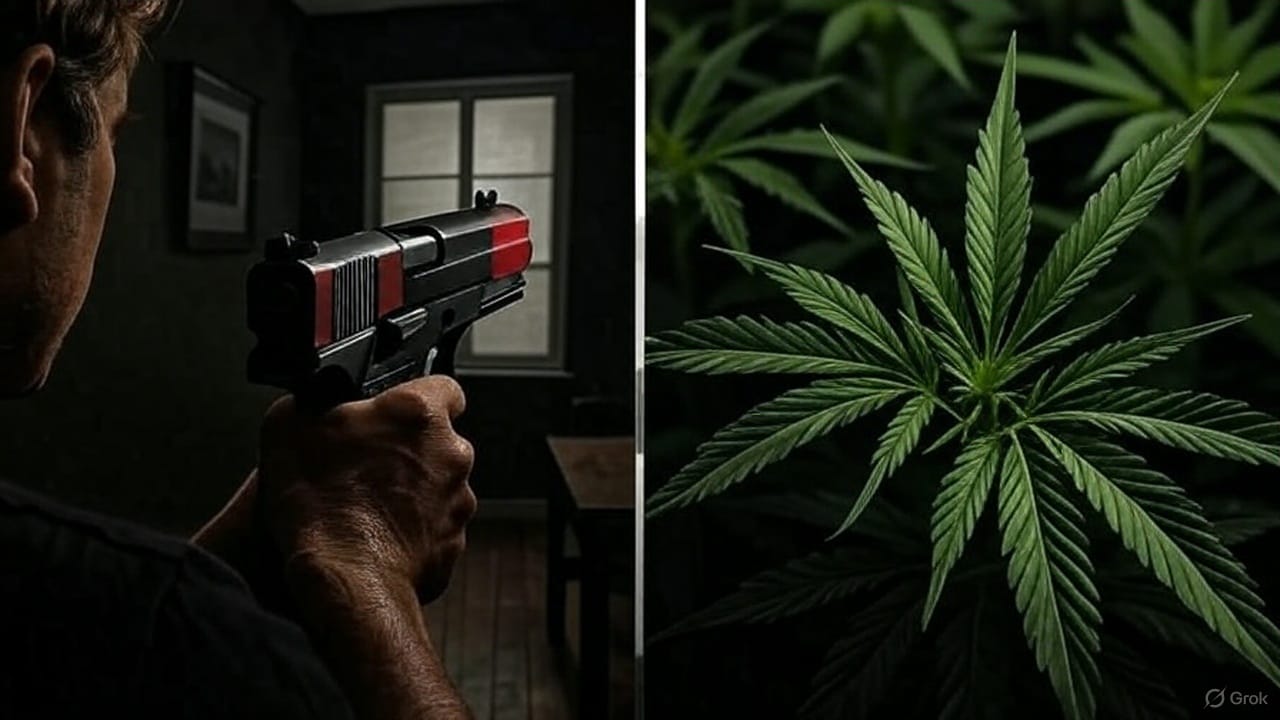- Shortlysts
- Posts
- Supreme Court Weighs Whether Marijuana Users Can Legally Own Guns Under Federal Law
Supreme Court Weighs Whether Marijuana Users Can Legally Own Guns Under Federal Law
Supreme Court case tests if marijuana users can legally own guns, as state laws clash with broad federal firearm restrictions.

What Happened
The Supreme Court is reviewing a case that could reshape the rights of marijuana users when it comes to gun ownership. At issue is a federal law that prohibits anyone who “uses or is addicted to a controlled substance” from owning or possessing firearms. The case was brought by a man who says he used marijuana legally under his state’s laws and should not be disqualified from owning a gun under federal statute.
The law in question classifies marijuana as a Schedule I controlled substance, meaning it is illegal under federal law even though 38 states have legalized it in some form. The plaintiff argues that his legal use of marijuana under state law does not make him dangerous or unfit to exercise his Second Amendment rights.
Several justices questioned how far the federal government can go in restricting gun rights based on legal behavior under state law. Some suggested that occasional marijuana use may not justify a blanket ban, especially if there is no evidence of addiction or abuse.
Why It Matters
This case tests the limits of federal authority over gun ownership and how federal law should treat Americans who follow state law but risk violating federal statutes in the process.
Millions of Americans use marijuana legally under state law. If the Court sides with the government, it would confirm that those users cannot legally own or possess firearms, regardless of their state’s policies. That would put them in a legal bind, forcing them to choose between their gun rights and their decision to use marijuana legally.
If the Court sides with the plaintiff, it could open the door for a narrower reading of the federal gun ban. It may apply only to those who are actively abusing drugs or using them in ways that present a clear safety risk.
The case also comes at a time when the federal government is under pressure to reclassify marijuana and reconcile conflicting laws. A ruling in favor of gun-owning marijuana users could accelerate those reforms.
How It Affects You
A ruling that upholds the federal ban means that lawful marijuana users, even those using medical cannabis with a prescription, could face federal prosecution if they own a gun. That includes people who have never been arrested, never been accused of violence, and are otherwise following the law.
However, if the Supreme Court limits how the ban is applied, it could restore Second Amendment protections for millions of Americans. It would reduce legal uncertainty and prevent people from being forced to choose between following state law and exercising a constitutional right.
It also raises bigger questions about how the federal government enforces gun laws and whether current policies reflect the realities on the ground. With gun rights already a central issue nationwide, this case emphasizes how far federal agencies can go in defining who qualifies as a “prohibited person.”
Ultimately, this decision could shape not just who can own a gun, but how federal law interacts with evolving state laws. It will determine whether personal freedom or bureaucratic consistency takes priority.